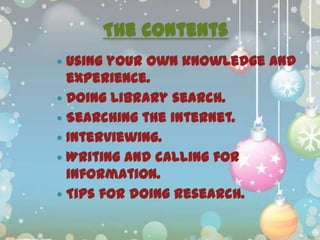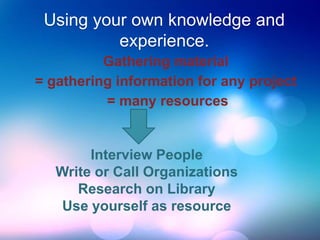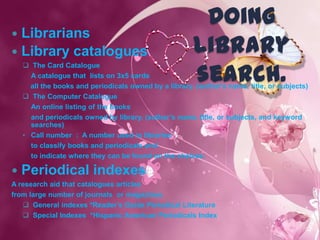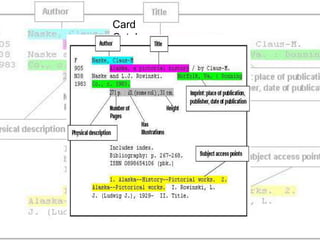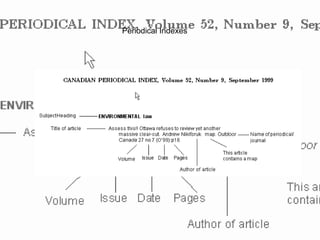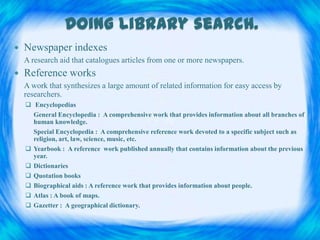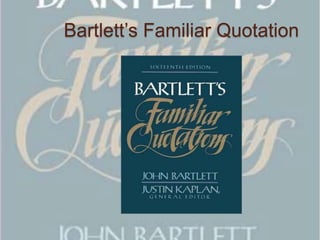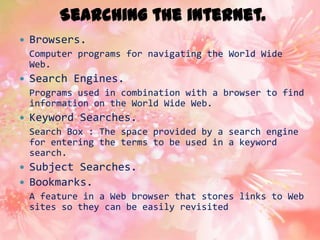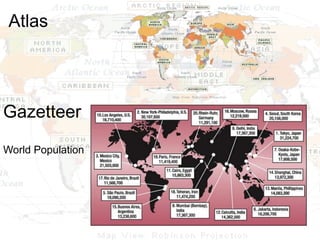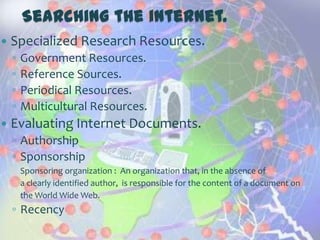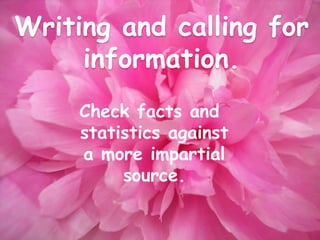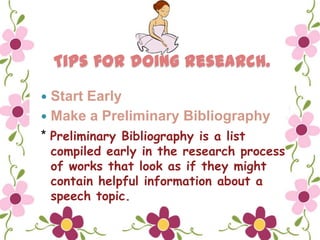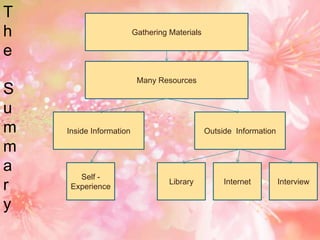How to get material for presentation
- 1. Chapter 6 Gathering Materials Gracea Elsa Sabandar Maria Kristina Pingkan
- 2. The Contents ’éŚ Using your own knowledge and experience. ’éŚ Doing library search. ’éŚ Searching the internet. ’éŚ Interviewing. ’éŚ Writing and calling for information. ’éŚ Tips for doing research.
- 3. Using your own knowledge and experience. Gathering material = gathering information for any project = many resources Interview People Write or Call Organizations Research on Library Use yourself as resource
- 4. Doing ’éŚ Librarians ’éŚ Library catalogues library search. ’ü▒ The Card Catalogue A catalogue that lists on 3x5 cards all the books and periodicals owned by a library. (authorŌĆÖs name, title, or subjects) ’ü▒ The Computer Catalogue An online listing of the books and periodicals owned by library. (authorŌĆÖs name, title, or subjects, and keyword searches) ŌĆó Call number : A number used in libraries to classify books and periodicals and to indicate where they can be found on the shelves. ’éŚ Periodical indexes A research aid that catalogues articles from large number of journals or magazines. ’ü▒ General indexes *ReaderŌĆÖs Guide Periodical Literature ’ü▒ Special Indexes *Hispanic American Periodicals Index
- 8. Doing library search. ’éŚ Newspaper indexes A research aid that catalogues articles from one or more newspapers. ’éŚ Reference works A work that synthesizes a large amount of related information for easy access by researchers. ’ü▒ Encyclopedias General Encyclopedia : A comprehensive work that provides information about all branches of human knowledge. Special Encyclopedia : A comprehensive reference work devoted to a specific subject such as religion, art, law, science, music, etc. ’ü▒ Yearbook : A reference work published annually that contains information about the previous year. ’ü▒ Dictionaries ’ü▒ Quotation books ’ü▒ Biographical aids : A reference work that provides information about people. ’ü▒ Atlas : A book of maps. ’ü▒ Gazetter : A geographical dictionary.
- 10. Searching the internet. ’éŚ Browsers. Computer programs for navigating the World Wide Web. ’éŚ Search Engines. Programs used in combination with a browser to find information on the World Wide Web. ’éŚ Keyword Searches. Search Box : The space provided by a search engine for entering the terms to be used in a keyword search. ’éŚ Subject Searches. ’éŚ Bookmarks. A feature in a Web browser that stores links to Web sites so they can be easily revisited
- 12. Searching the internet. ’éŚ Specialized Research Resources. ŌŚ” Government Resources. ŌŚ” Reference Sources. ŌŚ” Periodical Resources. ŌŚ” Multicultural Resources. ’éŚ Evaluating Internet Documents. ŌŚ” Authorship ŌŚ” Sponsorship Sponsoring organization : An organization that, in the absence of a clearly identified author, is responsible for the content of a document on the World Wide Web. ŌŚ” Recency
- 13. Interviewing. Research interview : An interview conducted to gather information for a speech. ’éŚ Before the Interview ’éŚ During the Interview ’éŚ After the Interview
- 14. Before the Interview ’éŚ Define the Purpose of the Interview ’éŚ Decide Whom to Interview ’éŚ Arrange the Interview ’éŚ Decide Whether or Not to Use a Tape Recorder. ’éŚ Prepare Your Questions.
- 15. During the Interview ’éŚ Dress Appropriately and Be on Time. ’éŚ Repeat the Purpose of the Interview. ’éŚ Set Up the Tape Recorder, If You Are Using One. ’éŚ Keep the Interview on Track. * Listen carefully. * DonŌĆÖt overstay Your Welcome.
- 16. After the Interview Review Your Notes As Soon As Possible. Transcribe Your Notes.
- 17. Writing and calling for information. Check facts and statistics against a more impartial source.
- 18. Tips for doing research. ’éŚ Start Early ’éŚ Make a Preliminary Bibliography * Preliminary Bibliography is a list compiled early in the research process of works that look as if they might contain helpful information about a speech topic.
- 19. Tips for doing research. ’éŚ Take Notes Efficiently * Record notes on index cards. * On each card write the note, the source of the note, and a heading indicating the subject of the note. * Use a separate card for each note. ’éŚ Think About Your Materials As You Research
- 20. T h Gathering Materials e Many Resources S u m Inside Information Outside Information m a Self - r Experience Library Internet Interview y
- 21. Thank You ’üŖ


